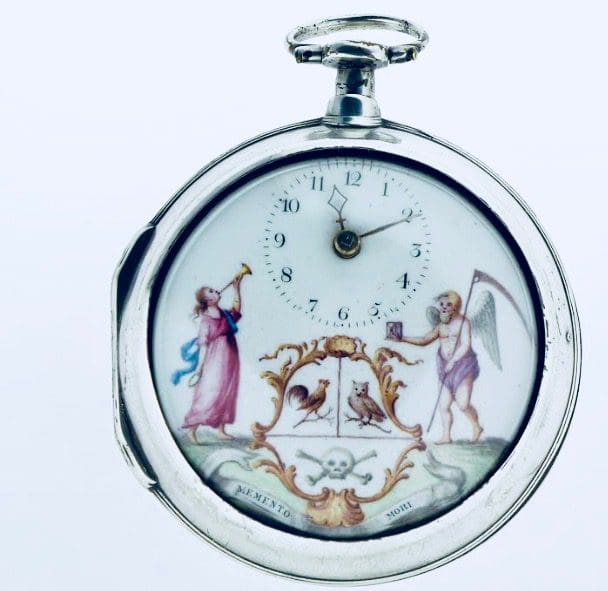Search Posts
Recent Posts
- Dr. Rosemary Costigan Named President of Community College of Rhode Island June 19, 2025
- RI Veterans: Did you know? 19.06.25 (Military Funerals, Job Fair, Benefits, Events) – John A. Cianci June 19, 2025
- East Providence First in U.S. to Equip All Firefighters with PFAS-free Gear June 19, 2025
- We Cook! Mill’s Tavern Saffron Bouillabaisse with Tarhana Lobster Jus June 19, 2025
- Rhode Island Weather for June 19, 2025 – Jack Donnelly June 19, 2025
Categories
Subscribe!
Thanks for subscribing! Please check your email for further instructions.

GriefSpeak: Memento Mori
By: Dr. Mari Dias
“The choice was made
Plans were laid
To exit life
To end this strife
Ingest the pills
Depression kills
You fade way
So still you lay
Fading into Darkness
Into an Endless Sleep
But wake to find yourself alive
You have failed at suicide” (Tearstained, Final Thoughts, 2003)
Memento Mori
It was a Tuesday morning, and I was on my way to speak at the national Association of Death Education and Counseling annual conference. I was excited with the anticipation of speaking to this lofty group. I had been waiting years for one of my proposals to be accepted for presentation, and this was my big chance. Unfortunately, my flight from Providence was delayed. 45 minutes. Then an hour. Then 2 hours. Then, waiting for substitute plane. Finally, we were on route. I anticipated missing my connection in Atlanta. Once landed, I ran through 3 concourses to my connecting gate. Fortunately, my connection was late as well.
I sat down at the cell phone station to charge my phone, confused as to why I was almost out of battery so early in the day. As I plugged in my phone, I noticed a text message that was posted 1 minute before.
It was a former client who simply said:
“64 Xanax.”
“What?!, I thought. “What about 64 Xanax?”
I texted her back, still tethered to my charging table. Simultaneously the announcement for boarding to my final destination came in through the microphone.
“Those with the letter “A” may board.”
That was my letter, but I didn’t move. I waited for her reply which never came.
I was flustered and overwhelmed at what I perceived as two conflicting demands – get on the plane or call 911. I soon realized I could achieve both; however, I did not have an address for the client, although I did have an emergency contact number. I called her daughter and then texted her. I was met with a voice message and silence. By this time, I was in my seat, seat belt fastened, ready for take- off. The flight attendant was annoyed with me and repeatedly told me to get off my phone. I told her it was an emergency. She didn’t care.
I deplaned. I thought of what I emphasized to my students. The Counselor Code of Ethics stresses “Do no harm” and includes definitions of both mandatory and aspirational ethics. I strive for aspirational ethics. This woman’s life was my priority. Once again, I found myself running through the airport terminal, this time in search for a return flight to Providence. Success. I ran to a gate that indicated a future flight to Providence, all the while calling and texting her daughter.
“Your mom has taken an overdose of Xanax. I’ve called 911 but I don’t know her address. The police and EMTs are trying to locate her.”
Just as the attendant notified me that the next flight to Providence was in 30 minutes, my phone was ringing. Serendipity.
It was my client’s daughter. She received my messages and texts, but thought I might be exaggerating, so she went home to check on mom. She found her slumped half-way off her bed, wedged between the bed and the night table. She was unresponsive. She called 911 with the correct address. The EMTs arrived, gave mom a shot of Narcan and acknowledged the empty bottle of pills and an almost empty bottle of tequila.
Mom was rushed to an ICU bed at a local hospital, where she was first given charcoal and then intubated. There she remained for several days. Once she was able to breathe on her own, she was transferred to a local residential treatment facility for help with the emotions that led up to the attempt.
The flight back to Providence seemed endless. Upon arrival, I found myself running, once again – this time to a waiting Uber to take me to the hospital. The airline was worried about my luggage. Apparently, it had taken the route of my planned itinerary and was waiting impatiently at my final destination. Not my priority.
She survived. We learned later than she had been stockpiling the Xanax for a day like that Tuesday. She knew it was only a matter of time. The tequila came first and offered a mode of disconnection, some kink in her cognitive processes. Taking the entire bottle of pills seemed like the rational action.
I remain incredulous over the wonder of the universe and its synchronicity. I found myself caught up in the miracle questions:
“What if my first flight was not delayed?” But it was.
What if my connecting flight was not delayed?” But it was.
Where would I have been at 12:20pm that day if it had gone as planned?”
I would have been in flight to my final destination, never having seen the text until I landed. That would have been too late.
As often as these things happen, I still am amazed at the outcome. I had a 5-minute window to charge my phone and noticed the text. It was meant to be.
She claims I saved her life. Perhaps I assisted in saving her life – yet she did text me. Why? It doesn’t matter. She was either reaching out, or warning, or preparing me. In any event, she is here. Many are not.
My best advice is to reach out to someone. We know that most people regret their decision within minutes of taking action. There is no room for guilt and shame, even after the deed is done. Text someone, let them know. This world is empty without you, you know.
_______________
Note: The names and location have been changed to protect the identity of anyone mentioned here. The details were created, either through imagination or experience.

Dr. Mari Dias is a nationally board-certified counselor, holds a Fellow in Thanatology and is certified in both grief counseling and complicated grief.
She is Professor of Clinical Mental Health, Master of Science program, Johnson & Wales University. Dias is the director of GracePointe Grief Center, in North Kingstown, RI. For more information, go to: http://gracepointegrief.com/
